MercoPress. South Atlantic News Agency
Tag: economy
-
Thursday, April 7th 2011 - 10:11 UTC
Uruguay’s public debt to abandon foreign currencies for local Pesos

Uruguay this year plans to swap part of its foreign-currency bonds for debt denominated in Pesos, said Economy Minister Fernando Lorenzo. Uruguay will also sell Peso securities and use the proceeds to pay off bonds denominated in other currencies, Lorenzo said without providing further details.
-
Saturday, April 2nd 2011 - 07:28 UTC
Brazil planning further taxing on the inflow of “speculative” foreign capital

The Brazilin currency rallied more than 1.0% on Friday closing at its strongest level since August 21, 2008. The Real jumped 1.16% to 1.612 per US dollar. The gains came after a Reuters report that the government has decided to tolerate a Real trading stronger than the 1.65-per-dollar market in the short term.
-
Thursday, March 31st 2011 - 14:06 UTC
Foreign direct investment in Uruguay recovers in 2010: up 28% from 2009

Foreign direct investment in Uruguay reached 1.6 billion US dollars in 2010, up 28% from 2009, according to the fourth quarter Balance of Payments report released this week by the country’s Central bank.
-
Monday, March 28th 2011 - 01:03 UTC
IMF recommends ending fiscal stimulus before turning to capital controls
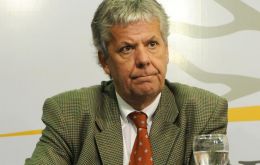
Latin American policy makers should withdraw fiscal and monetary stimulus to prevent their economies from overheating before turning to capital controls to limit foreign currency inflows, said Nicolas Eyzaguirre, the International Monetary Fund Western Hemisphere director.
-
Sunday, March 27th 2011 - 05:13 UTC
Paraguayan economy expands an all time record of 15.3% in 2010

Boosted by agriculture Paraguay's economy grew an all time record of 15,3% in 2010, following on a 3.8% contraction in 2009, according to the latest release from the Central bank.
-
Thursday, March 24th 2011 - 07:14 UTC
Argentine economy growing strong, benefits from imports’ restrictions
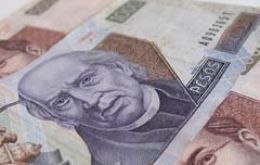
Argentina's industrial output rose sharply and the trade surplus beat market expectations during the month of February signalling that the economy is still growing strong.
-
Tuesday, March 22nd 2011 - 08:19 UTC
Argentina’s 2010/11 harvest estimated at over 100 million tons
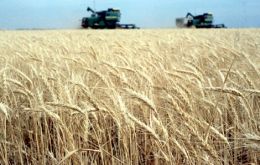
Argentina’s 2010/2011 grains and oilseeds harvest is estimated to have reached 100.46 million tons, which is above last year’s according to the latest technical report from the Ministry of Agriculture released this week.
-
Tuesday, March 22nd 2011 - 08:15 UTC
World Bank forecasts Japanese economy will begin recovering at the end of 2011
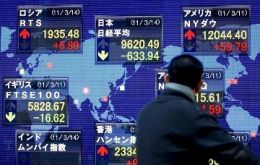
Japan's devastating earthquake and tsunami will depress growth briefly before reconstruction kicks off and gives the beleaguered economy a boost, the World Bank said in a report.
-
Tuesday, March 22nd 2011 - 08:10 UTC
In twelve Argentine provinces inflation is two times and a half the official index
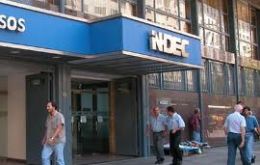
Several Argentine provinces mistrustful of government statistics, particularly inflation have mounted their own offices which show that consumer prices in the last twelve months have soared on average 27.5%, which is almost two and a half times the official index applicable to Buenos Aires City and Buenos Aires province
-
Saturday, March 19th 2011 - 07:13 UTC
Argentine economy expanded 9.2% in 2010 and begins 2011 with a”6% floor”
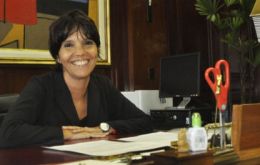
Argentina’s economy grew 9.2% during the last quarter of 2010 compared to the same period in 2009, according to an official report from the government’s statistics office, Indec. The country’s GDP also increased 2.5% compared to the previous trimester and totalling 9.2% growth during 2010.
